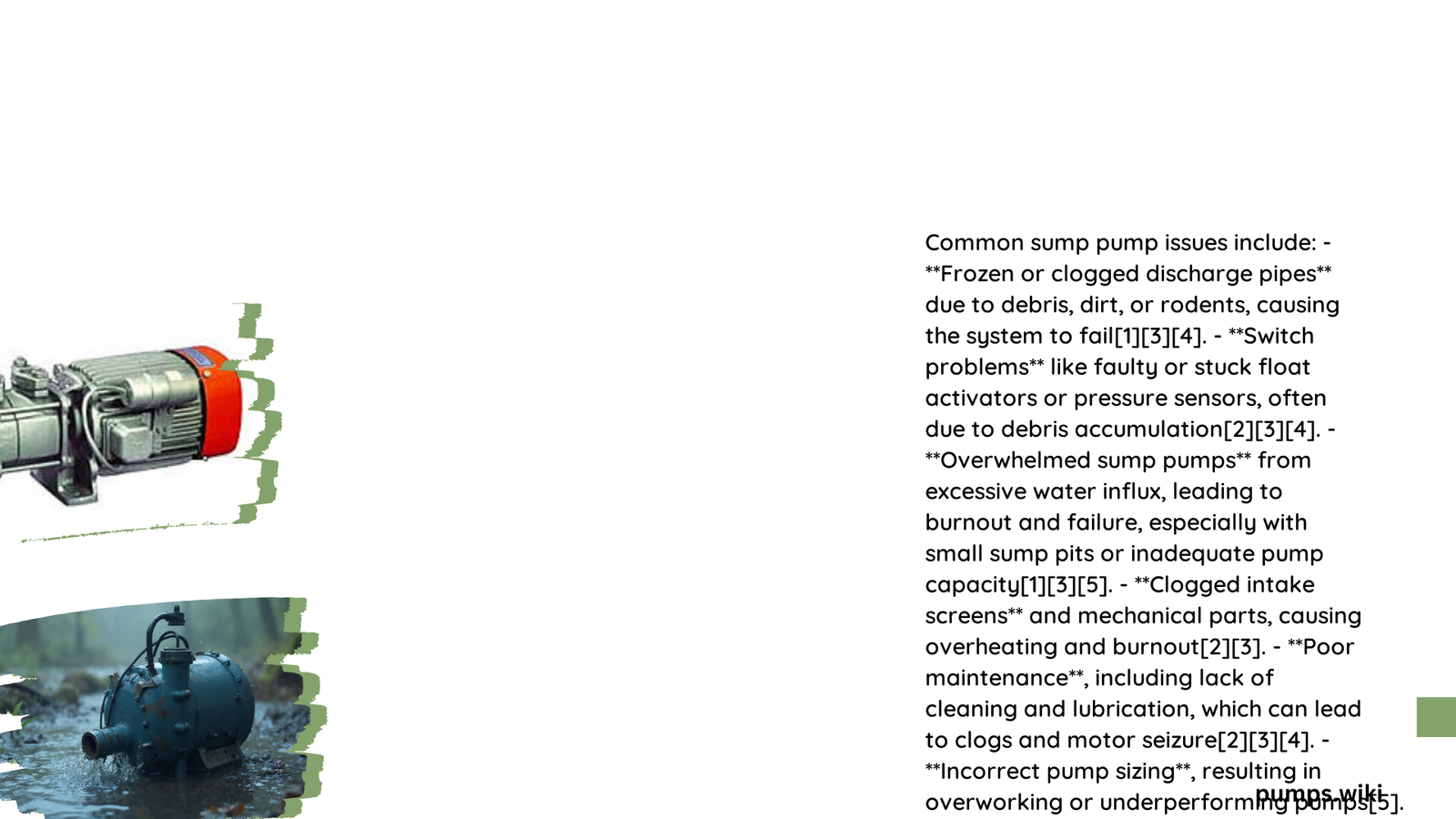Sump pumps are critical home protection systems that prevent basement flooding, but they frequently encounter operational challenges. Homeowners face multiple potential problems ranging from power failures and mechanical malfunctions to discharge line blockages and inadequate maintenance. Understanding these sump pump common issues can help prevent costly water damage and ensure reliable basement protection.
What Causes Sump Pump Failures?
Sump pump failures can result from various interconnected factors that compromise the system’s effectiveness. Let’s explore the most prevalent issues homeowners encounter.
Why Do Power Outages Disrupt Sump Pump Operations?
Power outages represent a significant vulnerability in sump pump systems. During electrical interruptions, standard electric pumps become non-functional, leaving homes exposed to potential flooding.
Mitigation Strategies
- Install battery backup systems
- Consider generator-powered alternatives
- Use water-powered backup pumps
| Backup Power Option | Cost Range | Reliability | Installation Complexity |
|---|---|---|---|
| Battery Backup | $200-$500 | High | Moderate |
| Generator | $500-$2,000 | Very High | Complex |
| Water-Powered Pump | $300-$600 | Moderate | Easy |
How Do Discharge Line Clogs Develop?
Discharge line obstructions emerge from accumulated debris, sediment, and environmental factors. These blockages prevent efficient water removal, causing potential system failure.
Prevention Techniques
- Regular line inspection
- Annual professional cleaning
- Install protective screens
- Use flexible discharge lines
What Triggers Float Switch Malfunctions?
Float switches control sump pump activation and deactivation. Mechanical wear, debris accumulation, or misalignment can cause significant operational disruptions.
Troubleshooting Steps
- Check switch movement
- Clean surrounding area
- Verify electrical connections
- Replace if excessive wear detected
Can Pump Capacity Impact Performance?
Undersized or overwhelmed pumps struggle to manage water volume, leading to potential basement flooding and system breakdown.
Sizing Considerations
- Calculate basement water volume
- Consider local rainfall patterns
- Evaluate pump gallons-per-hour (GPH) rating
- Consult professional hydraulic engineers
Why Does Regular Maintenance Matter?
Consistent maintenance prevents unexpected failures and extends sump pump lifespan. Neglecting routine checks can lead to costly repairs and water damage.
Recommended Maintenance Schedule
- Monthly visual inspections
- Quarterly functional tests
- Annual professional evaluation
- Immediate repair of identified issues
Expert Recommendations

Professional Maintenance Costs
- Basic inspection: $50-$200
- Component replacement: $100-$500
- Complete system upgrade: $500-$1,500
Warning Signs Requiring Immediate Attention
- Unusual grinding noises
- Continuous pump operation
- Visible rust or corrosion
- Inconsistent water removal
Final Insights
Understanding sump pump common issues empowers homeowners to proactively manage their basement water protection systems. Regular maintenance, strategic upgrades, and prompt problem resolution can significantly reduce flooding risks.
Key Takeaways
- Prioritize preventative maintenance
- Invest in reliable backup systems
- Monitor pump performance consistently
- Address issues promptly
Reference:
– AAA Standards Services Sump Pump Guide
– ARS Sump Pump Lifespan Information
– Lasiter Sump Pump Problem Analysis
